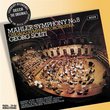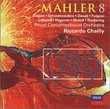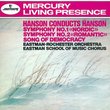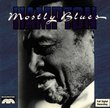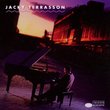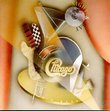| All Artists: Gustav Mahler, Simon Rattle, City of Birmingham Symphony Orchestra, Christine Brewer, Soile Isokoski, Juliane Banse, Birgit Remmert, Jane Henschel, John Relyea Jon Villars , David Wilson-Johnson Title: Mahler - Symphony No. 8 / City of Birmingham Symphony Orchestra, Rattle Members Wishing: 0 Total Copies: 1 Label: EMI Classics Release Date: 4/12/2005 Genre: Classical Styles: Historical Periods, Early Music, Symphonies Number of Discs: 1 SwapaCD Credits: 1 UPC: 724355794529 |
Search - Gustav Mahler, Simon Rattle, City of Birmingham Symphony Orchestra :: Mahler - Symphony No. 8 / City of Birmingham Symphony Orchestra, Rattle
 | Gustav Mahler, Simon Rattle, City of Birmingham Symphony Orchestra Mahler - Symphony No. 8 / City of Birmingham Symphony Orchestra, Rattle Genre: Classical
![header=[] body=[This CD is available to be requested as disc only.]](/images/attributes/disc.png?v=15401716) ![header=[] body=[This CD is available to be requested with the disc and back insert.]](/images/attributes/disc_back.png?v=15401716) ![header=[] body=[This CD is available to be requested with the disc and front insert.]](/images/attributes/disc_front.png?v=15401716) ![header=[] body=[This CD is available to be requested with the disc, front and back inserts.]](/images/attributes/disc_front_back.png?v=15401716) |
Larger Image |
CD DetailsSimilar CDs
Similarly Requested CDs
|
CD ReviewsOnce again, it's the sound that undermines the performance B. Guerrero | 12/27/2006 (4 out of 5 stars) "I've been putting off reviewing the Rattle Mahler 8th because it's a real toughie. That being the case, I'm going to cut to the chase right away. Once again, EMI has provided Rattle with less than outstanding sound. If you have a DVD player that's hooked up to your main stereo, get this on the extended range DVD disc. It's not a DVD-A, but a disc that can played in ANY DVD player (it won't play on a regular CD player though). It does have a fairly extended dynamic range - rather like what you'd expect from a DVD-A. I found this to be a sizeable improvement over the plain, old CD. As for the performance itself, Part 2 is better than Part 1. Part 1 finds Rattle pushing a bit too much in the faster parts. It's not such a problem during the big double fugue passage, but it becomes one at end of the "Gloria" - the concluding section of part 1. Here, Rattle's desire to keep pushing ahead sort of obscures choral detail, as well as actually robbing this ending of some it's majesty, if you will. Part 2 is much better. In fact, this might possibly be the greatest performance of Part 2 ever. All of the soloists are very good, but they're also supported by a stronger than usual childrens chorus (a weak childrens chorus was one of the down-falls of the highly touted Kent Nagano M8, along with some very sluggish tempi for the first fifteen minutes or so of Part 2). No such troubles here, as Rattle does a particularly good job of capturing the changes of mood - the ebb and flow of Part 2, if you will. He's very Wagnerian with the baritone and bass-baritone solos, yet captures the lighter, more Mendelssohn-like character of the passages for children and womens voices that follow. Jon Villars does a very good job on his two long and difficult tenor solos (Kollo, Heppner, and Richard Leech are better still). But none of this means anything if the ending falls flat. Again, no such troubles here. The chorus is sufficiently large, and the Birmingham organ roars like a 747 on take-off. More important, Rattle mixes up his tempi in an intelligent way; speeding up for the males' ascending, "das ewig Weibliche zieht uns hinan" (often times dragged). After the chorus cuts out, he takes the onstage trombone soli at almost a march tempo - matching the speed in which that same theme is employed in Part 1 - yet, he slows down significantly for the symphony's concluding measures; the grandest ending in all of western music. What to do? Again, if you have a DVD player, it's worth investigating this on the extended range DVD disc (also comes with an interesting interview, and rehearsal footage that's the only video component). For Part 1, I really like the Nagano recording. Unfortunately, his Part 2 takes too long to get warmed up. Nagano is also let down by a less than stellar tenor, and a childrens chorus that's simply too wimpy sounding. Solti is reliable, but - let's face it - it's pretty dated now. Better all-around Mahler 8th's are the Tennstedt one that just got reissued on EMI's remastered "Great Recordings Of The Century" edition (coupled to a pretty decent Mahler fourth), as well as the recent Anton Wit/Warsaw Phil. one on Naxos. My personal favorite Mahler 8th of any (drum roll, please) is the Gary Bertini one on EMI. However, at this time, you can only get in the box set of the complete symphonies conducted by him - Bertini. As a supplement, anybody with a DVD player should get the Bernstein/Vienna Phil. DVD disc of symphonies 7 & 8 (DG). But still, even with the regular CD issue, you could do far worse than the Rattle. Just don't expect an audiophile event, is all. " I'm impressed! G | Connecticut, USA | 01/15/2007 (4 out of 5 stars) "Most classical fans were not expecting a completely re-worked performance of Mahler's arguably most powerful symphony when they saw Sir Rattle's name on the cover. Although many were glad to see him completing his Mahler cycle for EMI, it was doubtful that everybody was expecting a masterful performance.
Boy did Mr. Rattle shock us! This is not the be-all end-all recording of Mahler's 8th, but it's a significant and unique attempt at the work. In particularly high spirits was the tenor soloist, as well as the horn section. The tenor soloist gave me chills down my spine that I'd never felt when experiencing this piece. For the price, this disc is worth it alone for the tenor's performance, but the orchestra and choir are not half-bad either. Sound quality is above average, but by no means great, which is why the score has been deducted one star. While imaging and sound-stage were quite impressive, the recording dynamic and vertical axis needed more work, and the vocalists did not have enough definition within the x-y-z plane. Likely caused by the same engineering fault, the choir also suffered from a noticeable lack of resolution. And all the while, the crash cymbal was far too present, with excessive loudness and clarity, when compared to the rest of the entire orchestra! The most reasonable cause is a poor microphone placement, or maybe some studio trickery (which is purely inexcusable if such is the case). So, to conclude, this is a nearly excellent performance of Mahler's 8th Symphony, and any classical fan will know that this piece is no small undertaking. Respect must be given for merely attempting to pull this performance off. Rattle and company did a respectful job, certainly, but engineering faults and the lack of top-level performers bring this recording down slightly. This recording is still essential for any Mahler fan, but it would be best to begin a collection with one of the more definitive recordings." |

 Track Listings (25) - Disc #1
Track Listings (25) - Disc #1